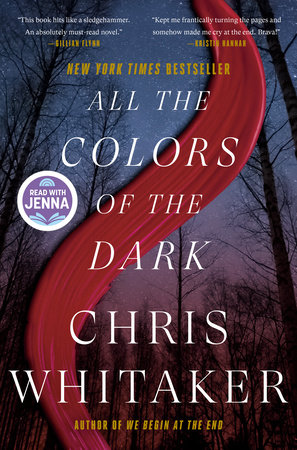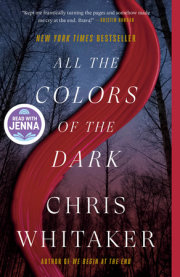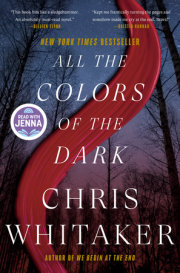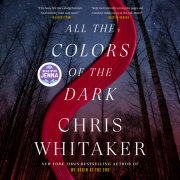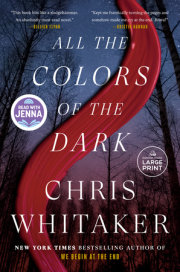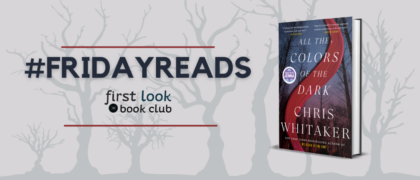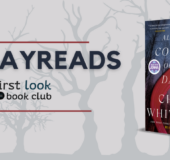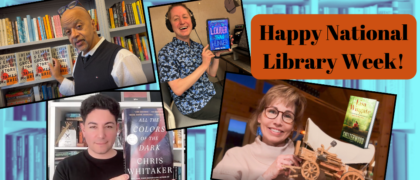1 From the flat roof of the kitchen Patch looked out through serried pin oaks and white pine to the loom of St. Francois Mountains that pressed the small town of Monta Clare into its shade no matter the season. At thirteen he believed entirely that there was gold beyond the Ozark Plateau. That there was a brighter world just waiting for him.
Though later that morning, when he lay dying in the woodland, he’d take that morning still and purse it till the colors ran because he knew it could not have been so beautiful. That nothing was ever so beautiful in his life.
He climbed back into his bedroom and wore a tricorne and waistcoat and tucked navy slacks into his socks and fanned the knees until they resembled breeches. Into his belt he slid a small dagger, metal alloy but the bladesmith was skilled enough.
Later that day the cops would crawl over the intricacies of his life and discover he was into pirates because he had been born with only one eye, and his mother peddled the romance of a cutlass and eye patch because often for kids like him the flair of fiction dulled a reality too severe.
In his bedroom they would note the black flag pinned to hide a hole in the drywall, the closet with no doors, the fan that did not work, and the Steepletone that did. The antique treasure chest his mother had found at a flea market in St. Louis, doubloon movie props, a replica one-shot flintlock pistol. They would bag a roll of firecrackers and the June 1965 Playboy, like they were evidence of something.
And then they would see the eye patches.
He looked them over carefully, then selected the purple with the silver star. His mother made them and some of them itched, but the purple was satin smooth. Eighteen in total, only one carried the skull and crossbones. He decided he might wear that one on his wedding day should he ever work up the courage to speak to Misty Meyer.
He removed the hat. His hair touched white in summer months and sand come winter, and he combed it but a tuft by the crown stood to attention like an antenna.
In the kitchen his mother sat. The night shift mortified her skin.
“You picking up signals with that thing?” she said, and tried to fix his hair with her palm. “Pass me the Crisco.”
He ducked away as she laughed. Patch liked his mother’s laugh.
The weekend before she’d taken him to Branson to see about a job. Ivy Macauley chased near misses like acceptance of place was the greatest sin. He’d fill up the Fairlane with just enough gas and she’d fill up the cab with excitement, fixing her hair into a Fonda shag and squeezing his hand and telling him this was it. He’d wait the interview hour alone in towns he did not know.
She’d fixed eggs, and he wondered just how tough it was to be a parent, and if at times all poor kids were some kind of well-intentioned regret.
“Today will be the best day of my life,” he said.
He said that often.
Because he could not know what would come.
2 He heard the mailman and ran for the door in case there was another letter from the school, but she took the envelope from him and closed her eyes and kissed it. “It’s got a St. Louis postmark.”
A month before, she’d interviewed at the botanical garden while Patch smiled at symmetrical families in the shade of Tower Grove House.
He held his breath till the sag of her shoulders.
Their Monta Clare rental was the kind of temporary already growing roots, the foundations knotting around his mother’s ankles no matter how hard she hacked at them with declarations of women’s lib, or how loud she played Dylan to remind herself that times were changing.
“We take something from every knock,” he said, and screwed up the letter. He scanned the empty shelves in the refrigerator. “Black Bart Roberts took near five hundred ships in his time. But he started out when he was captured himself. A legendary navigator, his captors spotted his potential and let him live. Before long they voted him captain.”
Sometimes she looked at him like he was the sum of her failings. Each night he lifted rusted dumbbells until his skinny arms burned, grinding his childhood away.
She noticed the bruise by his cheekbone as she removed his waistcoat and fixed his pants and licked her palm to smooth his hair down.
“Fighting, Joseph. Try to remember you’re all I’ve got.” She went to move the eye patch but he gripped her wrist and she softened.
“Then it sucks to be you.” He added a smile.
Sometimes he took the album from beneath her bed and mapped the rise and fall of her.
“You need to eat breakfast,” she said, as he pushed the plate down toward her.
“They give us something at school if we forget,” he lied too easy.
“You nervous? My little pirate. No more trouble from here on. No stealing and no fighting. New school, new start, right?”
“Show me a pirate that never got in some kind of trouble.”
“I’m serious, Joseph. I don’t need the school on me. That woman who stopped by, she looked at me like I can’t even care for you.” Ivy cupped his face. “Promise me.”
He could’ve told her he didn’t ever start it. “No more trouble.”
“You walking in with Saint?”
He nodded.
Ivy would go through this with the first responder, and then Chief Nix. She’d tell them she didn’t notice anyone hanging around. Or see a dark van. Or anything much beyond the slow wake of Rosewood Avenue.
And later, when it got worse, she’d wonder how much of her son’s life she had missed.
3 Across the street Mr. Roberts pushed his new Lawn Boy. The Robertses’ house was painted each spring, white clapboard, navy gable. That night in place of Hawaii Five-O the Robertses would sit on their porch and watch the cops crawl over the Macauley house. Mrs. Roberts would pour them a couple of fingers of bourbon to steady the nerves as Mr. Roberts said it was only a matter of time before something bad happened to that kid.
Green grass. Buffed sedans. Flags hung limp and still. Their house was tall and maybe once was grand, but a generation of neglect dragged at its shine. The only rental on the street, Patch tore weeds from the yard, cleared leaves from the gutters, and hammered slates to the roof after each storm like he did not know he was furnishing someone else’s future. He’d whistle as he worked, nodding hello to passing neighbors. Smiling. Always.
The next morning the cops would walk that same road, knocking on doors and asking questions, trying to piece together events that would mar their town for years to come.
News vans would set up outside the small police station and ramp up the pressure on Chief Nix, who would stand before the flashing bulbs and stammer his way through an ill-prepared statement. For that one day, Patch would wrestle Lynette Fromme and her assassination attempt on Gerald Ford from the front page of the St. Louis Post-Dispatch.
He found a long stick and slashed at the air, then turned it into a gun and fired warning shots at the approaching armada.
“Man the cannon, sea hag,” he said to the Anderson widow as she strolled past. She did not man the cannon.
At the foot of Main Street he looked for Saint, for the blue dungarees torn at each knee, the single braid she wore each day because she claimed it kept the hair from her eyes when she climbed the Morrisons’ apple tree and tossed down the choice picks.
He gave her five minutes then kicked a can along Main Street. He affected his best Curt Gowdy cowboy and commentated, “Patch Macauley, the first one-eyed boy to kick a seventy yarder.”
Outside Lacey’s Diner sat a cherry-red Thunderbird. Chuck Bradley and his older brothers leaned against it.
“Vikings,” Patch whispered beneath his breath. He tried to turn when Chuck noticed him and nudged the other two.
It would take the cops two days to get to Chuck and his brothers, but only a half hour to confirm their alibis.
Patch ducked down the alleyway behind the stores.
He heard footsteps, turned and saw the three, so backed himself into a corner.
“Nowhere to run,” Chuck said. He was tall and older and handsome enough. His brothers, wholesome copies. Chuck dated Misty Meyer, the feted beauty Patch had remained deeply in love with since kindergarten.
They moved a little closer. Patch backed up further until he felt the cool brick against him, and that was when he felt it, digging into his back.
He slipped the dagger from his belt and throttled the grip.
“No way you’re using that,” Chuck said, though Patch heard the doubt in his voice.
Patch stared at the blade as his knees shook. “November 1718, Robert Maynard finally captured the legend, Edward Teach. You’ll know him as Blackbeard.”
Chuck glanced at his brothers. One of them laughed.
“Maynard cut him twenty times with a knife just like this. Then grabbed a handful of his hair and hacked his head clean off.”
Copyright © 2024 by Chris Whitaker. All rights reserved. No part of this excerpt may be reproduced or reprinted without permission in writing from the publisher.

